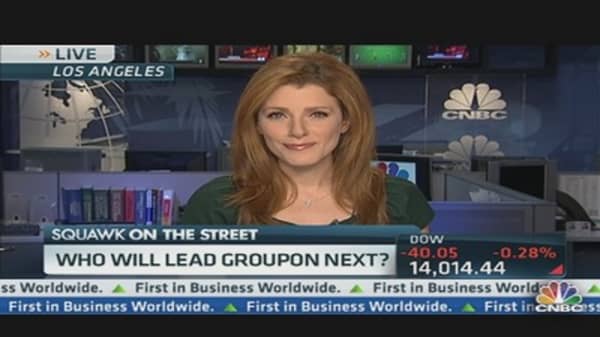Andrew Mason's questionable tenure at Groupon finally came to an end Thursday after he was fired as chief executive of the hot tech company he founded.
As market watchers autopsy Mason's leadership and what went wrong, small businesses and those in the e-commerce space are feeling let down by the initial hype of digital deal platforms — and going back to the drawing board. "Groupon wrongly focuses on the coupon rather than the customer experience," said David Lee King, a blogger and expert in emerging technologies and e-commerce.
(Read More: Andrew Mason Out as Groupon CEO; Shares Jump)
For smaller merchants, Groupon often fails to translate initial coupon buzz into loyal, repeat customers and sustained revenue growth. Some small-business owners offer deals at a loss in exchange for exposure to new clients.
Groupon and the daily-deal model are hinged on coupons delivered right to smartphones. The platform was going to capitalize on mobile customers!
But the deals, it turns out, often have short shelf lives and plenty of strings attached — often detailed in the fine print. Consumers can pocket the sale price — but only for certain items, only on certain days and not during prime-time meal hours, as examples.
(Read more: Subway 'Wouldn't Exist' If Started Today Due to Regulations: Founder Deluca)
Merchants, meanwhile, can get overwhelmed by a flood of anxious customers, coupons in hand.
King recalled a night out at a restaurant that received an overwhelming Groupon response. "The restaurant was people bombed by a coupon doing really well. We didn't go back because it was such a bad experience," said King, also author of "Face2face: UsingFacebook, Twitter, and Other Social Media Tools to Create Great Customer Connections"
Digital coupons also can be problematic for franchisees, which sometimes aren't notified of deals issued by company headquarters. And when customers storm in demanding coupons be honored, those unexpected transactions can derail small businesses for whom a firm grip on cash flow can make or break a business.
Plus, anecdotal evidence suggests some merchants use daily deals as a source of quick money during tough times. Groupon spokeswoman Julie Mossler has said the company in no way wants to be a piggy bank for struggling companies, and vets its merchants before doing business with them.
(Read more: One Franchisee's Cautionary Tale About Groupon's Pitfalls)





